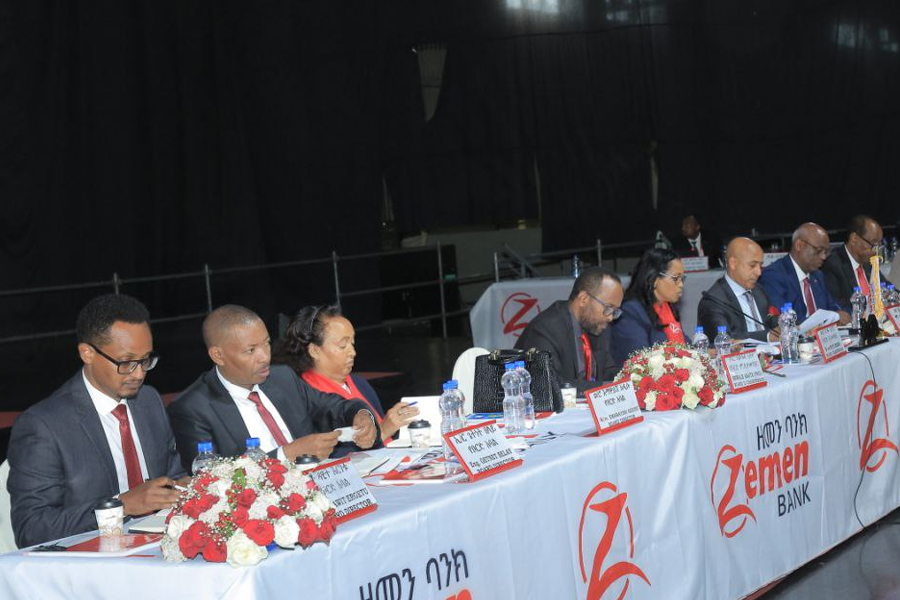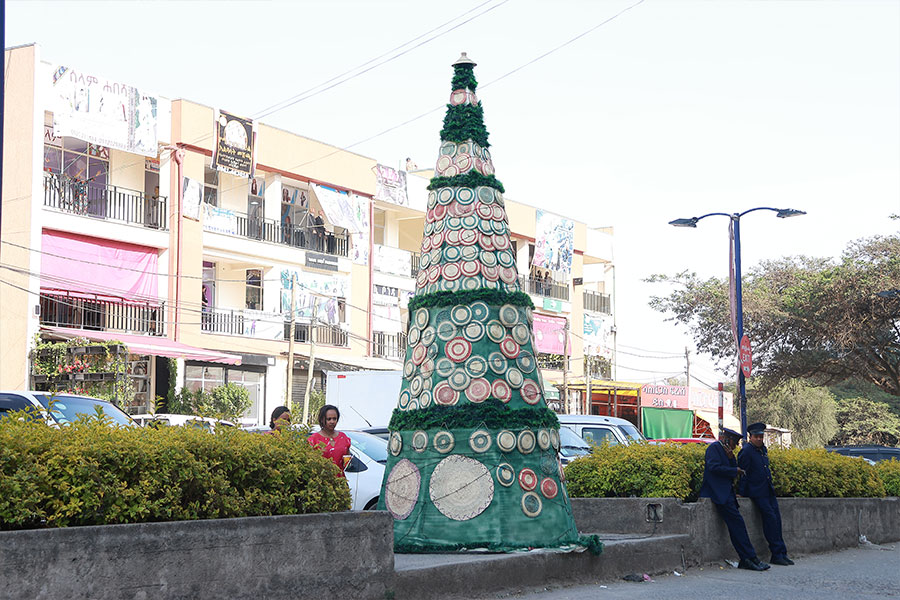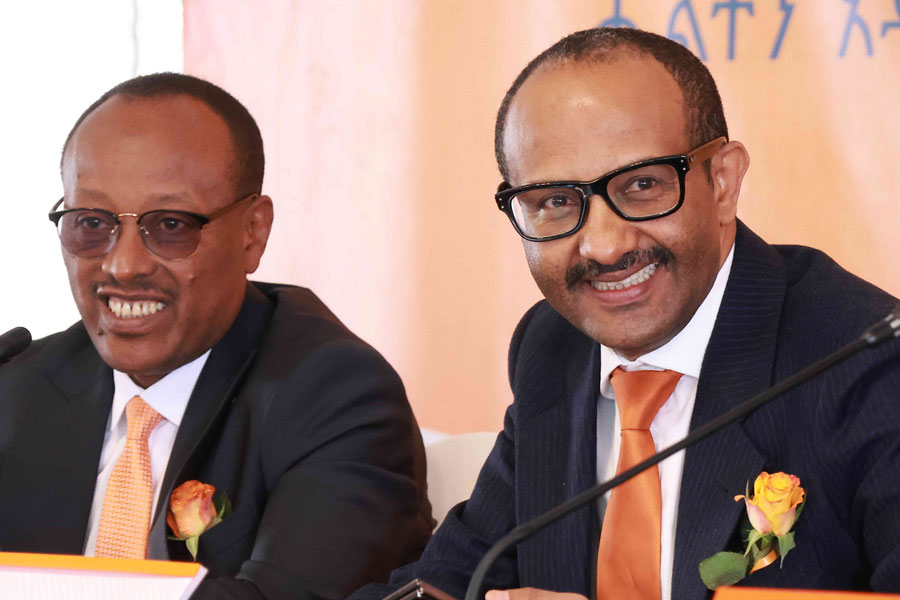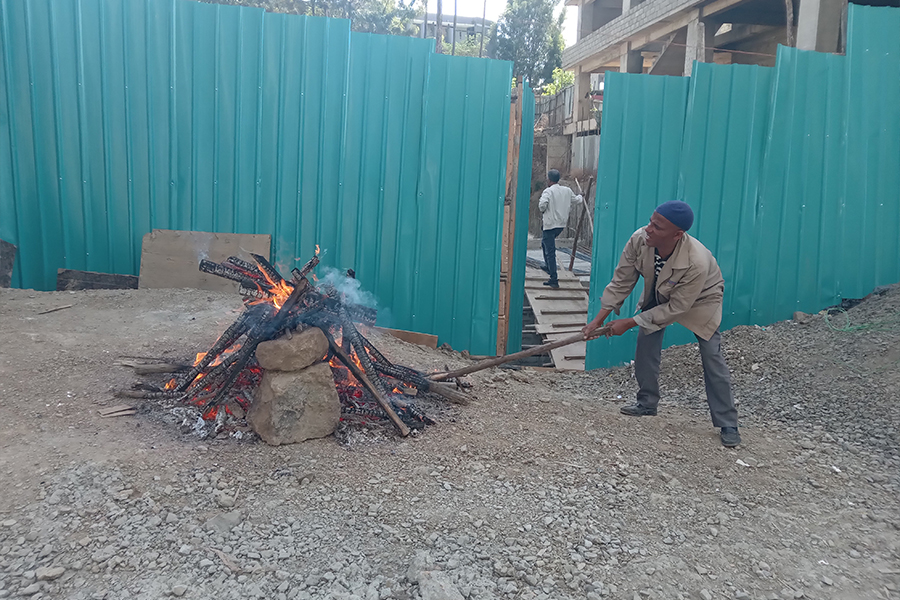
Radar | Oct 19,2024
Aug 10 , 2025
By Mikiyas Mulugeta
In a fresh tremor to Africa’s fragile economies, the Trump Administration’s second wave of tariffs, effective August 8, 2025, has landed with a jolt. Duties ranging from 15pc to 30pc now apply to imports from 22 countries, dragging the continent deeper into a global protectionist churn. The move heralds a departure from decades of partnership under the African Growth & Opportunity Act (AGOA) and marks a definitive shift toward zero-sum economics in Washington’s trade doctrine.
Previpus U.S. trade actions have usually focused on security-sensitive items. This time around, the net is wider, covering automotive parts, food products and industrial goods. According to an African trade negotiator, the cost of this protection is being borne by trading partners once considered allies. South Africa, the continent’s industrial engine, is hit hardest. A 30pc levy now covers key exports from auto parts and citrus to processed metals that sustain thousands of jobs. Pretoria warns the move “undermines long-standing trade relations and threatens economic growth.”
Diplomats see a clear signal. No partner, however strategic, is safe from Washington’s election-year calculus. Analysts say the measures flow more from domestic U.S. politics than joint growth agendas. Supporters argue African imports dent niche U.S. industries in swing states. Critics counter that supply chains will simply reroute to Asia, leaving American consumers with higher prices and Africa with fresh hardship.
Algeria and Libya also face 30pc duties. Tunisia’s rate inches down to 25pc, up by three percentage points. Ghana, Uganda and Nigeria remain at the 15pc floor despite years within U.S. programs. Lesotho and Madagascar still face major barriers despite partial relief.
For businesses, the volatility makes long-term planning nearly impossible, and small businesses across the continent feel squeezed.
U.S. imports from sub-Saharan Africa totalled about 39.5 billion dollars in 2024, down from a 2008 peak of 82 billion dollars when oil dominated. Crude’s retreat and fiercer competition caused much of that slide. The new duties threaten niche sectors, such as textiles, processed foods, and speciality minerals, that filled some of the gap.
Other powers are poised to benefit. China, already Africa’s largest trade partner, is courting governments rattled by Washington’s turn. India and the European Union (EU) are widening commercial diplomacy. Analysts warn that eroding trust could harden into lasting realignments.
Ethiopia, spared direct duties this round, is still exposed, however. Its industrial plan depends on predictable global rules. Inflation has cooled to 13.9pc from 30pc, according to official figures, yet foreign-currency shortages persist and the gap between the official and parallel exchange rates is widening. Any slide in export demand could stall factory expansion and complicate debt service.
The African Continental Free Trade Area (AfCFTA) may offer a platform for a collective response, but implementation lags. Heads of state have scheduled an extraordinary summit in Accra next month to hammer out a joint tariff response and contingency plans for vulnerable industries. According to legal experts, a unified front could amplify Africa’s voice in Washington, much as the EU wielded leverage over earlier U.S. steel tariffs. Fragmentation leaves states chasing piecemeal concessions.
Cameroon’s experience illustrates the danger. After absorbing April’s 11pc duty, Yaoundé expected stability. Instead, its rate jumped to 15pc with little notice. Timber and cocoa exporters are repricing contracts again and bracing for further surprises. Angola’s and Botswana’s cuts, meanwhile, give their diamond and beef shippers an edge over neighbours still paying higher surcharges, straining regional ties.
Finance ministers urge a shift toward self-reliance, arguing that the pandemic has proven that supply chains can be rerouted overnight and that building regional manufacturing should now be a strategic priority. Yet, capital and technology often arrive through open trade, and an inward turn could slow growth as Africa’s young workforce swells. Many officials prefer to keep courting foreign investors while demanding consistent rules from Washington.
For Africa, the choice is between enduring tariff volatility or crafting a buffer and accelerating intra-continental trade, investing in infrastructure and technology, and strengthening institutions that can absorb external shocks. Policy makers warn that the stakes stretch beyond economics, for prosperity underpins peace.
Factory managers from Durban to Dakar are already recalculating margins. Currency desks are bracing for fresh pressure. Investors studying the August list anticipate another review in early 2026 unless U.S. politics swing. The numbers tell one story, and the broader lesson is simple. Africa can no longer assume that U.S. trade policy automatically tilts toward partnership. In an era of transactional politics, the continent should define and defend its economic destiny.
The Trump tariff wave is about priorities and power. It demonstrates how one country's domestic calculus can alter supply chains thousands of miles away. African leaders should speak with one voice or risk paying the price of decisions made elsewhere. Building a resilient, sovereign economic zone should no longer be an aspirational slogan. It is a strategic necessity for long-term peace and prosperity across the continent.
PUBLISHED ON
Aug 10,2025 [ VOL
26 , NO
1320]


Radar | Oct 19,2024

Commentaries | Nov 06,2021

Fortune News | Aug 30,2025

Viewpoints | May 24,2025

Radar | Jan 16,2024

News Analysis | Jan 19,2024

Radar | Dec 12,2020

In-Picture | Mar 02,2024

View From Arada | Apr 20,2025

Commentaries | May 31,2025

Photo Gallery | 169505 Views | May 06,2019

Photo Gallery | 159751 Views | Apr 26,2019

Photo Gallery | 149292 Views | Oct 06,2021

My Opinion | 136193 Views | Aug 14,2021





Dec 22 , 2024 . By TIZITA SHEWAFERAW
Charged with transforming colossal state-owned enterprises into modern and competitiv...

Aug 18 , 2024 . By AKSAH ITALO
Although predictable Yonas Zerihun's job in the ride-hailing service is not immune to...

Jul 28 , 2024 . By TIZITA SHEWAFERAW
Unhabitual, perhaps too many, Samuel Gebreyohannes, 38, used to occasionally enjoy a couple of beers at breakfast. However, he recently swit...

Jul 13 , 2024 . By AKSAH ITALO
Investors who rely on tractors, trucks, and field vehicles for commuting, transporting commodities, and f...

Oct 4 , 2025
Eyob Tekalegn (PhD) had been in the Governor's chair for only weeks when, on Septembe...

Sep 27 , 2025
Four years into an experiment with “shock therapy” in education, the national moo...

Sep 20 , 2025
Getachew Reda's return to the national stage was always going to stir attention. Once...

Sep 13 , 2025
At its launch in Nairobi two years ago, the Africa Climate Summit was billed as the f...

Oct 5 , 2025 . By NAHOM AYELE
In Meqelle, a name long associated with industrial grit and regional pride is undergo...

Oct 5 , 2025 . By BEZAWIT HULUAGER
The federal government is set to roll out a new "motor vehicle circulation tax" in th...

Oct 5 , 2025 . By NAHOM AYELE
The Bank of Abyssinia is wrestling with the loss of a prime plot of land once leased...

Oct 5 , 2025 . By BEZAWIT HULUAGER
The Customs Commission has introduced new tariffs on a wide range of imported goods i...